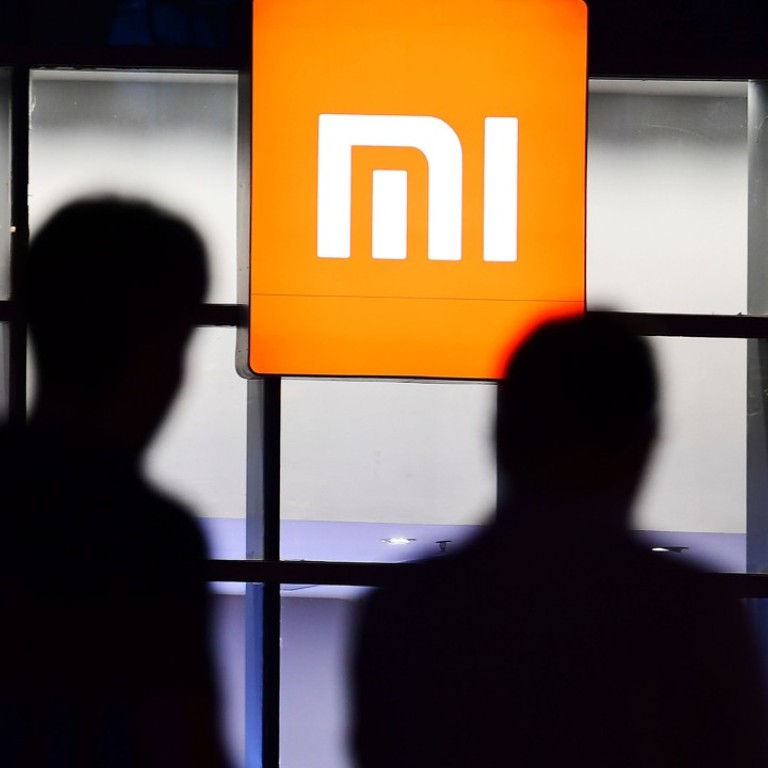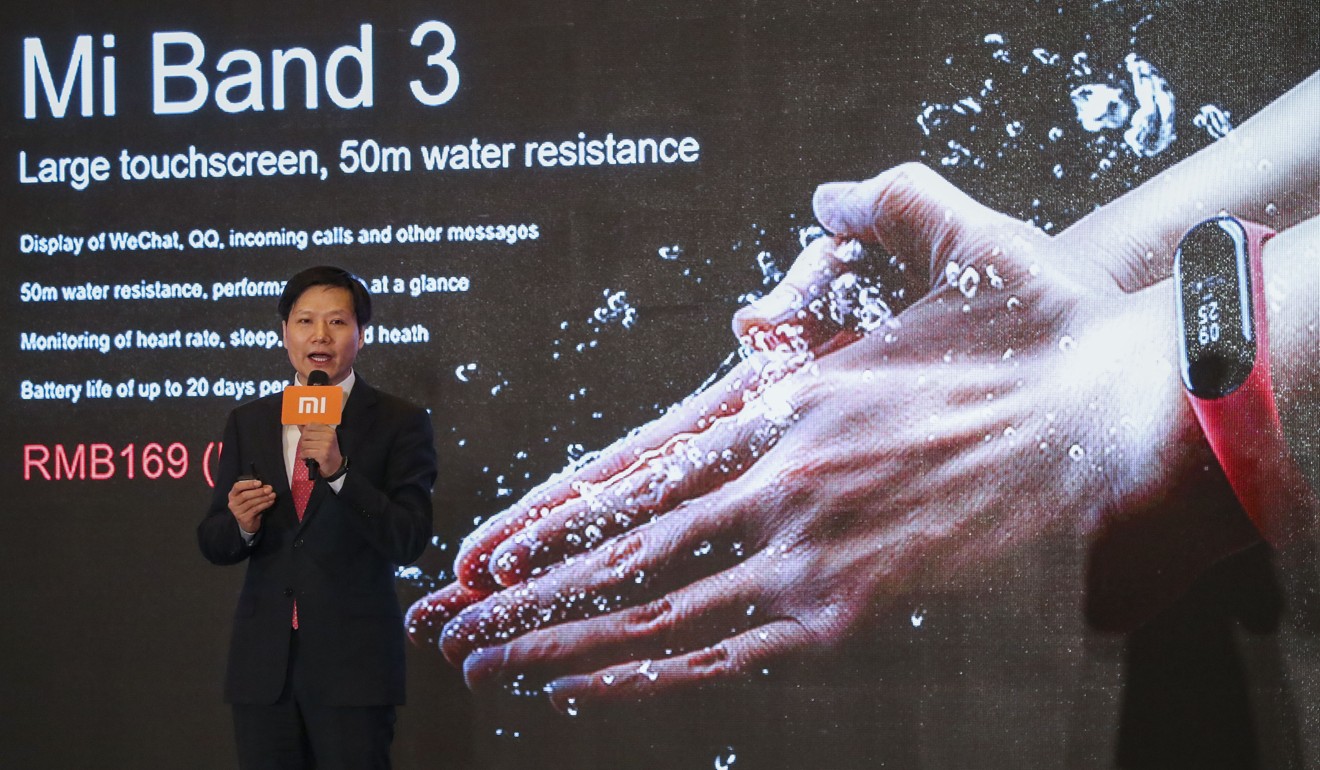
China’s Xiaomi tops Apple and Fitbit in smart tech wearables in Q3, analysts say
- The tech giant now accounts for 20 per cent of global market share
Xiaomi’s goal for global domination moved a step further after it beat Apple and Fitbit to claim the No 1 spot again in the global wearables market this third quarter, according to research firm IDC. It first topped the list in the second quarter in 2017.
The market intel report said that the Beijing-based tech firm, which is also one of the world’s leading smartphone makers, sold 6.9 million wearable devices up to September, accounting for over 20 per cent of global market share.
IDC noted that although Xiaomi’s shipment to China, which typically make up 80 per cent, fell to 61 per cent this quarter, its year-on-year growth surpassed 90 per cent. This was due to Xiaomi's significant expansion in developing markets including India, Europe, Africa and Middle East, it said.
Xiaomi’s new fitness tracker Mi Band 3, which is seen as a piece of affordable and quality technology, contributed to the glowing figures, IDC said. Xiaomi’s wearable devices include fitness trackers, smart shoes and children’s watches.

Apple took second place on the list with market share of 13 per cent and shipments of 4.2 million pieces. Fitbit and China’s Huawei ranking third and fourth, registering 10.9 per cent and 5.9 per cent market share.
Apple Watch Series 3 was the most popular following a price reduction, IDC said. The price of Series 3 was reduced from US$329 to US$279 while Apple's new Series 4 launched in the third quarter starts at US$499.
More than one third of the wearables sold in China were priced below 300 yuan, where most of Xiaomi’s wearables devices fall into. Around 45 per cent of wearables sold on the market are priced between 300-500 yuan and only 19 per cent of wearables are priced above 1,000 yuan, according to Chinese market researcher ibaogao.com

